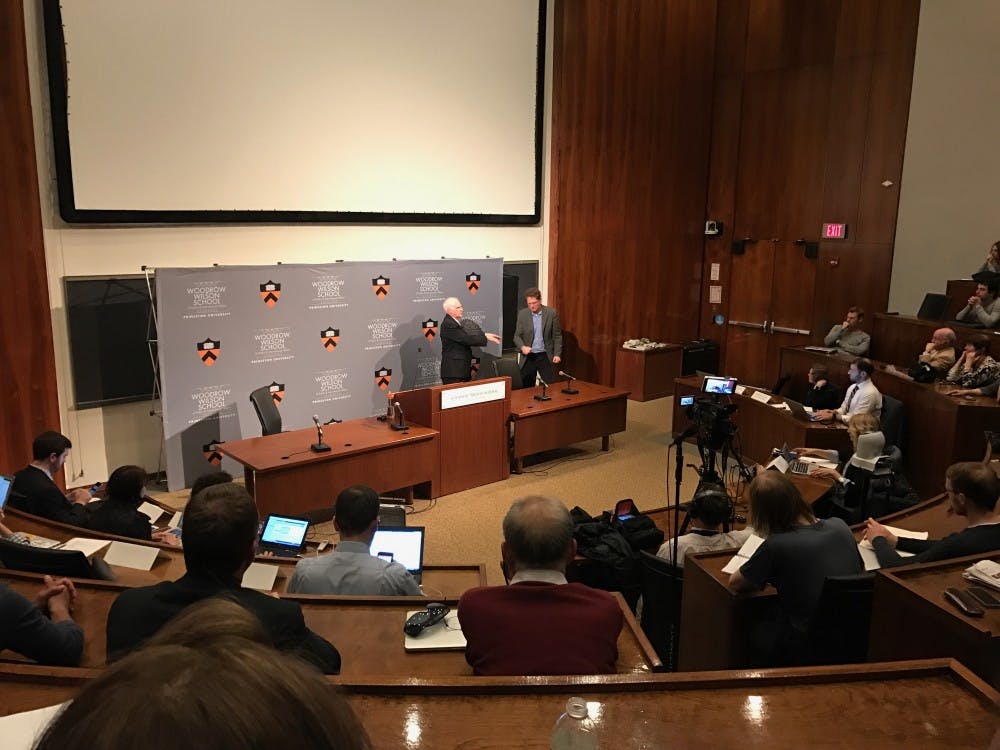Top financial regulator Daniel Tarullo gave his last speech as a member of the Board of Governors of the Federal Reserve yesterday at the University.
In his talk, Tarullo expressed his support for the Dodd-Frank Wall Street Reform and Consumer Protection Act and spoke out against financial deregulation.
Tarullo joined the Federal Reserve in 2009 at the height of the financial crisis. From that time until announcing his resignation in February 2017, the once-failing banks and Wall Street institutions have recovered and seen profits in the financial world. Indeed, Tarullo's time at the Fed has seen the highs and lows of the business cycle. His stepping down, many speculate, opens up the Board to greater influence from the new administration. His stepping down comes four years before his term was set to end and his resignation letter gave no reason.
“I think that [Tarullo] has been an excellent governor,” economics professor Elizabeth Bogan wrote in an email when asked about Tarullo’s tenure at the Fed.
Tarullo is best known for his work with stress tests, a tool utilized by the Federal Reserve to ensure stability of major banks. These tests regulate capital while making other banking requirements more effective. The tests aim to force banks to remain solvent and to retain the ability to work as intermediaries in markets.
Stress tests involve putting banks in hypothetical situations that assess whether a bank can take a certain level of loss and still remain able to lend and engage in typical banking affairs – most importantly if the bank can still lend. When the first stress test was conducted in 2009, banks took an inexplicably long time to find and analyze the data surrounding their exposure and the risk of their assets.
The current strength of stress tests is derived from Dodd-Frank law, a major piece of financial regulation created in response to the Great Recession. In accordance with Dodd-Frank, annual stress tests are conducted on major banks. Each year, a quantitative report is published detailing the ability for each bank to react and survive in a crisis. Tarullo explained that due to the heavy weight that investors and the public put on these reports, banking supervisors often overvalue these results instead of focusing on the comprehensive analysis that the stress tests provide.
Dodd-Frank applies stricter regulations to larger banks, especially the ones deemed a threat to the financial system if they fail due to their complex ties to other financial institutions. The law also applies to community banks, requiring the banks to save more capital and grow at a slower pace.
Tarullo believes that while the Dodd Frank legislation has been a major boost to the financial system, it is not without its own flaws. For example, he explained that he believes the severity of restrictions applied to community banks could be made much simpler.
Recently the Federal Reserve has offered banks who failed the quantitative portion of the stress test to amend their plans for assets so that they would pass a stress test. This offering is in response to banks suffering severe financial penalties for failing the stress test.
“Capital regulation [is] the single most important element in prudential financial regulation," said Tarullo.
Tarullo closed his speech by championing strict regulations in order to ensure financial stability and longevity of markets. The event took place at 4:30 p.m. on April 4 in Robertson Hall.









